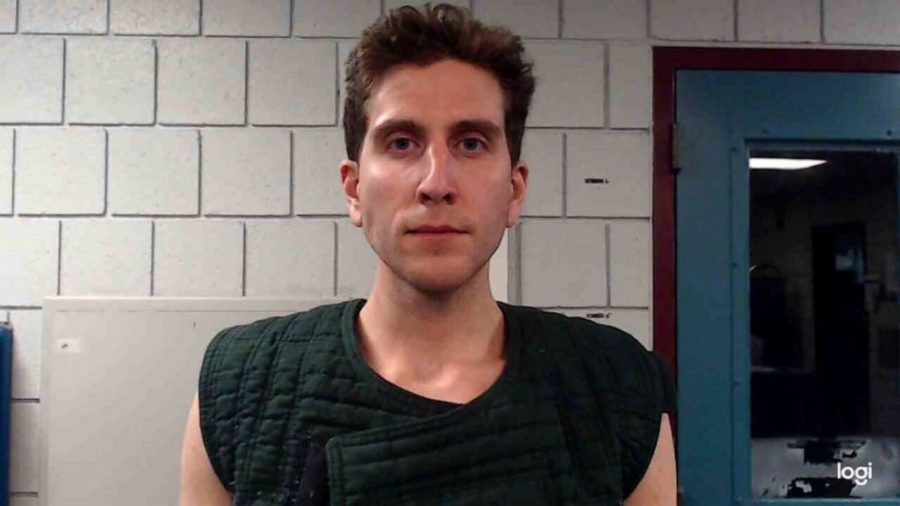University of Idaho murders draw national attention
January 19, 2023
A new wave of technology is now being used to catch criminals. Idaho murder suspect caught with geneology technology. The November Idaho killings has grabbed the public’s attention and kept people wondering until a suspect was in police custody. Four students from the University of Idaho, Kaylee Goncalves, Madison Mogen, Xana Kernodle and Ethan Chapin, were stabbed to death, Nov. 13. Police believed the quadruple murder took place between 4 and 4:25 a.m. The three girls were roommates and Chapin was Kernodle’s boyfriend.
At the start of the investigation, police had CCTV footage, DNA and a description of the car from the crime scene a 2011-2013 Hyundai Elantra. However, this was not sufficient enough to tie a person to the crime as neither the DNA or car was not found in the police’s system.
By late November, Bryan Christopher Kohberger was the primary suspect because his car was flagged at Washington State University, where the 28-year-old Criminology student was working to obtain his Ph.D. in the Department of Criminal Justice and Criminology. Kohberger was pulled over twice while driving cross country with his dad for the holidays in the same car that was spotted at the crime scene.
“I just know that they were pulled over in Indiana almost back to back. I believe once for speeding and once for following too closely to a car in front of them,” Kohberger’s attorney Jason LaBar said.
The suspect was right under their noses, but Kohberger still managed to evade arrest until Dec. 30.
The answer to this problem was Genetic Geneology, a new way of creating family history profiles or biological relationships between individuals. This process uses genealogical DNA testing, which is testing that looks at specific locations on a person’s genome in order to find ancestral genealogical relationships.
Officers were able to use genetic genealogy to identify Kohberger as their suspect by creating a family history profile. DNA contains three different sources of information; Y-chromosomal DNA, which is only present in males and gives information on the male line descent, mitochondrial DNA which is present in both genders and gives information on the female line descent and autosomal DNA, which gives information on relatives within the past five-to-seven generations. DNA found at the crime scene was compared to DNA found in Kohberger’s parents’ trash, which was shown to have a familial link after the police’s investigation.
“The similarities between the case sample profile and consenting individual profiles can help law enforcement identify individuals who are related to the sample of interest,” according to the Forensic Technology Center of Excellence’s report.
After finding the link between the DNA, authorities used cell phone data and video footage to connect him to the car seen near the scene at the time of the crime. Police looked for possible cell pings to tie him close to the murder scene, they found that his cell phone “pinged” twelve times in the vicinity of the home a month before the murders.
Kohberger was followed for four days before being arrested on four charges of first-degree murder.
After finding out about Kohbergers arrest and learning key details of the case, `daughter of a well-known serial killer Dennis Rader, Kerri Rawson, states that she believes there is a possible connection between her father, who is also known as the BTK (“bind, torture, kill”) killer, and Kohberger. Rawson claims there is a possibility they were in contact through a mutual associate: Dr. Katherine Ramsland. Ramsland, a professor at Desales University, taught Kohberger for his master’s degree in Criminology, and was very close with Rader which leaves police wondering if the murders were tied to Rader as well.
Key details of why Kohberger is believed to have committed the crime will be revealed in court, where the relatives of the victims will get to confront the man accused of murdering their loved ones. Kohberger’s first appearance in court was on Jan. 5, where he was denied bail, facing four counts of first-degree murder and a possible death penalty. Kohberger waived his right to a speedy trial and requested his preliminary hearing for June 26, 2023.






